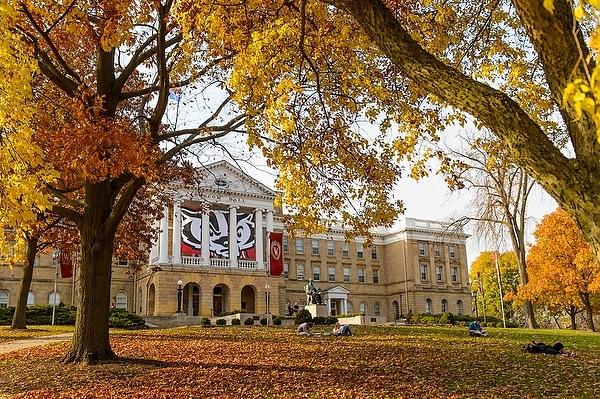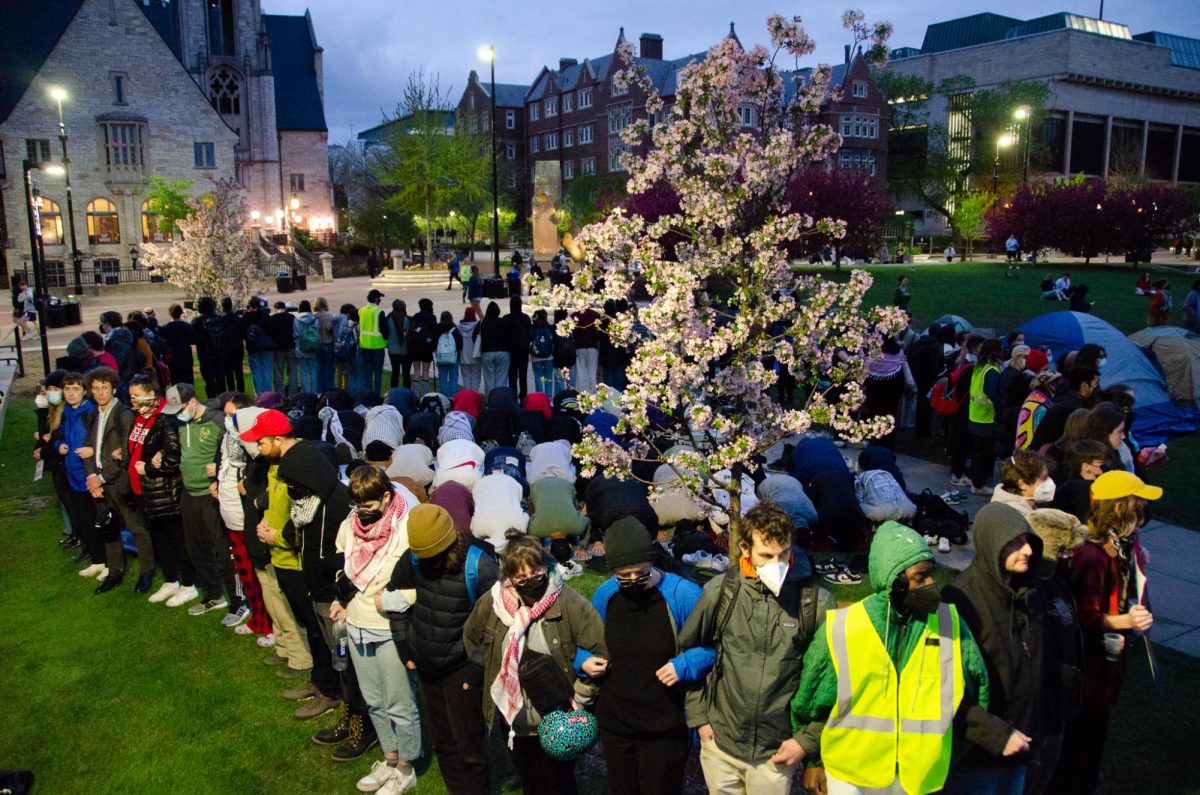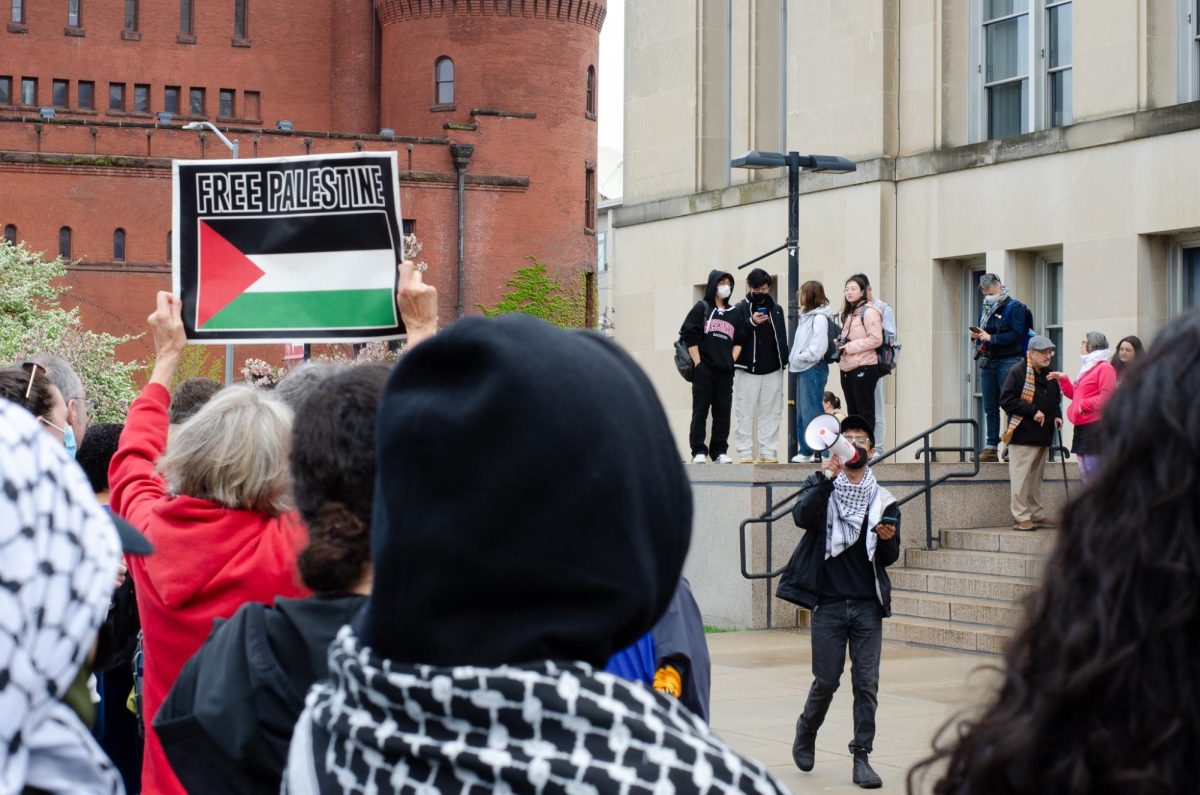At UW-Madison, the future is brighter than ever.
In the fall, the campus welcomed in the largest class in school history. Though state funding has decreased significantly for decades, UW-Madison still took in $890 million from the federal government and $512 million in gifts and private grants for the 2016-17 fiscal year according to the school’s budget brief. Additionally, the university spent around $1.1 billion on research during the 2015 fiscal year.
But the UW System schools surrounding Wisconsin’s flagship university have struggled in recent years to balance budgets in the face of withering revenue sources. A combination of declining state funds, reduced enrollment and frozen tuition rates have many UW schools across Wisconsin with structural deficits, Noel Radomski, the managing director of the Wisconsin Center for the Advancement of Postsecondary Education said.
Lacking the alternative sources of revenue that UW-Madison possesses and with additional challenges of student retention, schools across Wisconsin have been forced to cut courses, degrees and reduce staff.
Kristine Hendrickson, the Chief Financial Officer for UW-Stevens Point said anticipating the school’s future economic outlook is “crystal ball gazing.”
But the university has run a number of predictive models with different built-in assumptions. If enrollment continues to decline at the same rate it has for the past five years, the campus would run an $8 million dollar deficit under current spending patterns, Hendrickson said.
John Torinus, former business editor for the Milwaukee Journal Sentinel and CEO of Seregraph Inc. said there are no simple answers to the challenges facing the UW System.
Any solution would require strategic planning, which Torinus said has been largely absent. Aside from the merger of the two-year and four-year UW schools, Torinus said that strategic moves have been piecemeal and have been made only when the UW System is presented with a crisis.
“Strategic things are happening, but they’re not happening in an integrated way,” Torinus said. “They really need to look at the whole system and say, ‘ok, what do we need?’”
UW System to assess, adjust employee compensation in $900,000 study
Radomski said under both Republican and Democrat governors of the past, the Board of Regents has identified the regional assets of UW System schools and proposed strategies that are then implemented into the respective university’s budget requests.
This strategy has been absent in recent years, Radomski said.
“We have a Board of Regents who are perhaps not being provided guidance by the governor and they are dealing largely with brush fires,” Radomski said. “I would go one step further: They’ve kicked the can down the road.”
The University of Wisconsin System responded in an email, highlighting the Board of Regents’ approval in 2016 of the 2020 FWD initiative, which it describes as a long-term framework with targeted initiatives in four areas: The education pipeline, business and community mobilization, university experience and operational excellence.
Restructuring two-year campuses was a big first step, Hendrickson said. Ultimately, it is important to let the impact of the move settle before determining if more needs to be done.
Torinus said he’s advocating for a regional reorganization of the UW System. Under this type of organization, he said schools would focus on the needs of the region and specializing in the fields that the campus is already known to excel in.
Like a business, Torinus said the UW System schools have to reorganize to meet the available revenues.
There’s a lot of threads to the web, Radomski said. Often, making cuts successfully is not as simple as drawing a line and cutting everything below it.
Frequently, majors that draw in substantially fewer students are low-cost and can be used to subsidize more costly programs, Radomski said. An objective analysis may also fail to include a subjective perspective of the benefits that a program might provide to the community and culture of a campus. Oftentimes, liberal arts classes serve as general education classes.
It can then be difficult to retain professors at a university to teach these requirements if the college offers no degree, Radomski said.
Difficult decisions need to be made when the cost outweighs the benefit, Torinus said.
Moving forward, Torinus said, UW system schools are going to have to put a sharper definition on who they are and draw from the needs of the communities around them.
While it would be nice to have an engineering department on every campus, Torinus said, it simply isn’t viable. Instead, schools have to focus on what they have previously found success in, for UW-Stout, that would be the hospitality industry, for UW-Milwaukee, film school.
Hendrickson said UW-Stevens Point has sought out the voices of the schools, businesses and cities surrounding the school with the goal of better understanding the needs of the region. The challenge now, Hendrickson said, is responding to these needs.
This is a marked change from the way that UW-Stevens Point had conducted itself before the crisis.
“We were largely absent in these communities where these campuses are,” Hendrickson said. “It’s been great for us to start building some of those connections and I think it’s a benefit for the state.”
Despite the difficulty of the situation, Hendrickson said it presents an opportunity to build a university that provides for the needs of the future.
Like any organization going through a restructuring, there is an opportunity to make it better in the end, Hendrickson said.

















